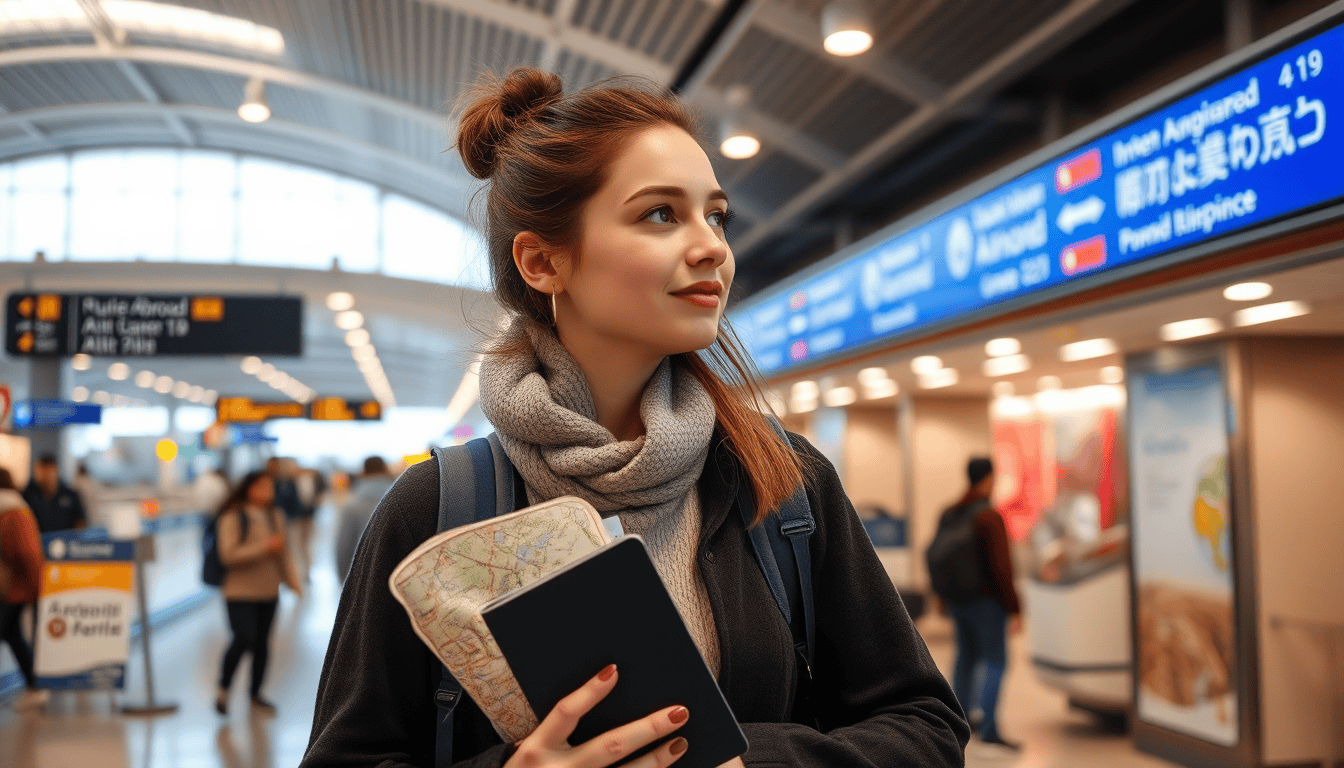
Studying abroad can be one of the most transformative experiences of your life. It offers not only the chance to enhance your academic knowledge but also the opportunity to immerse yourself in a new culture, meet diverse people, and gain invaluable life skills. However, as exciting as it is, preparing for your first study abroad experience can feel overwhelming. This guide will walk you through the essential steps to ensure you’re fully prepared for your adventure abroad.
1. Research Your Destination
Understand the Culture
Every country has its own unique culture, customs, and social norms. Spend time researching your destination. Read books, watch documentaries, and follow local news outlets. Understanding the local customs will help you adapt more easily.
Language Skills
While many people speak English around the world, it’s beneficial to learn some basic phrases in the local language. Consider enrolling in a language course or using language apps to familiarize yourself with common expressions. This will not only help you navigate daily life but also show respect for the local culture.
Academic Environment
Different countries have varying educational systems. Research the academic expectations and styles of your host institution. Are classes lecture-based or discussion-oriented? What kind of assignments will you have? Knowing what to expect can help you adjust your study habits accordingly.
2. Finances: Budgeting for Your Adventure
Create a Budget
Establish a realistic budget that includes tuition fees, accommodation, food, transportation, entertainment, and any travel plans. Consider using budgeting apps to track your expenses while abroad.
Open a Local Bank Account
Having a local bank account can save you money on international transaction fees. Research the banking options available in your host country and understand the requirements for opening an account.
Scholarships and Financial Aid
Investigate scholarship opportunities available for study abroad students. Many institutions offer funding for international studies. Apply early and be aware of the deadlines.
3. Health and Safety Preparations
Health Insurance
Ensure you have adequate health insurance coverage for your time abroad. Check if your current health insurance provides international coverage or if you need to purchase a separate policy.
Vaccinations and Health Precautions
Consult with your doctor about any necessary vaccinations or health precautions you should take before traveling. This is especially important for certain regions that may have specific health risks.
Emergency Plan
Familiarize yourself with local emergency numbers and procedures. Create a plan for how to handle emergencies, including lost passports or medical issues.
4. Practical Preparations
Housing Arrangements
Secure your accommodation well in advance. Whether you choose to live in a dormitory, homestay, or apartment, ensure it meets your needs and budget. Reach out to other students or online forums for reviews and advice on housing options.
Packing Essentials
When it comes to packing, consider the climate of your destination and the duration of your stay. Here’s a packing checklist to get you started:
- Clothing: Versatile and comfortable clothes suitable for the climate, including layers.
- Documents: Passport, visa, insurance documents, acceptance letters, and important contacts.
- Electronics: Laptop, phone, chargers, and any necessary adapters for different outlets.
- Medications: Bring enough prescription medication for your stay, along with copies of your prescriptions.
Technology Setup
Download essential apps that will make your life easier while abroad. This includes maps, translation apps, local transportation, and budgeting tools.
5. Engage with the Community
Connect with Other Students
Join social media groups or forums dedicated to students in your program or destination. This can help you meet fellow students before you arrive and can lead to friendships.
Attend Orientation Sessions
Most institutions offer orientation sessions for international students. These are excellent opportunities to learn about the campus, meet other students, and ask questions about your new environment.
Explore Your New City
Once you arrive, take time to explore your new surroundings. Visit local attractions, cafes, and markets. Engaging with your environment will enhance your cultural experience and help you feel more at home.
6. Embrace the Experience
Stay Open-Minded
Studying abroad can be a culture shock, but maintaining an open mind will help you embrace the differences and learn from them. Be prepared for unexpected challenges and view them as opportunities for growth.
Document Your Journey
Consider keeping a journal or blog about your experiences. Documenting your journey not only helps you reflect on your growth but also allows you to share your adventures with friends and family back home.
Network and Build Relationships
Take advantage of the diverse community around you. Attend local events, join clubs, or participate in activities that interest you. Building relationships with locals and fellow international students will enrich your experience.
Conclusion
Preparing for your first study abroad experience requires thorough research, careful planning, and an adventurous spirit. By following these steps, you’ll not only be ready for the academic challenges ahead but also for the personal growth and unforgettable memories that await you. Embrace the journey, stay curious, and enjoy every moment of this incredible opportunity. Happy travels!




